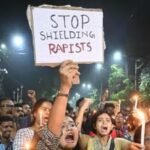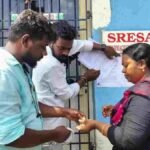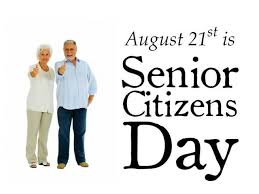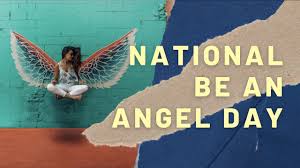Nigeria Independence Day – October 1, 2022, history significance why we celebrate
Nigeria Independence Day is on October 1. It celebrates the country’s independence from British rule which occurred in 1960. The government of Nigeria celebrates this holiday annually. The President’s address to the public marks the beginning of the festivities, this is broadcasted on radio and television.
The Nigerian Armed Forces, the Nigeria Police Force, the Ministry of Foreign Affairs, the workforce, and national education services all celebrate this day with the public. Offices and markets will close on this day and the citizens take to the street dressed in green and white to celebrate. Primary and secondary schools also perform a parade in various state capitals and local government areas.
HISTORY OF NIGERIA INDEPENDENCE DAY

Southern Nigeria Protectorate was combined with the Northern Nigeria Protectorate in 1917 to create the Colony and Protectorate of Nigeria. This is what we now know as modern-day Nigeria.
In 1950 the British Empire started to decline and many territories in Africa were calling for independence. This led to Nigeria being granted independence from Britain on October 1, 1960, and becoming the Federation of Nigeria. A new constitution was established with an elected prime minister and a ceremonial head of state. Nnamdi Azikiwe who was previously the Governor-General was the first President. Sir Abubakar Tafawa Balewa continued to serve as the prime minister, a position he had held since 1957.
In June 1961 the northern part of the Trust Territory of the Cameroons joined the Northern region of Nigeria and in October the Southern Cameroons united with the Republic of Cameroon to form the Federal Republic of Cameroon. On October 1, 1963, Nigeria became a republic with Azikiwe as president of the country.
Ethnic competitiveness, educational inequality, and economic imbalance caused regional stresses. To combat this the Mid-Western region was created in August 1963 but the country was still divided into three large geographic regions, each controlled by an ethnic group: the west by the Yoruba, the east by the Igbo, and the north by the Hausa-Fulani.
The fraudulent election in October 1965 led to the collapse of order in the west. In January 1966 a group of army officers attempted to overthrow the federal government, and Prime Minister Balewa and two of the regional premiers were murdered. Major General Johnson Aguiyi-Ironsi set up a military administration.
He planned to abolish the regions and create a united government but this was met with anti-Igbo riots in the north. The political situation was worsened by the military intervention as the army split along ethnic lines. Officers clashed over power and the instigators and leaders of the January coup were accused of favoring Igbo domination.
In July 1967 after many attempts to save the country, a civil war broke out. It lasted from July 6, 1967, to January 15, 1970.
NIGERIA INDEPENDENCE DAY TIMELINE
1850s
British Establish a Presence
The British establish their presence in Lagos.
1861—1914
Colony and Protectorate of Nigeria
Britain consolidates its hold over the Colony and Protectorate of Nigeria which it governs through local leaders.
1959
First Elections
Parliamentary elections are held in Nigeria on December 12, 1959.
October 1, 1960
Independance
Nigeria is granted independence.
January 1966
Coup
Balewa is killed in a coup and Johnson Aguiyi-Ironsi forms the military government.
RECOMMEND STORIES
- IRCTC’s New Rule: Soon You Can Change Your Travel Date Without Paying a Cancellation Fee
- Dude Movie Review: Pradeep Ranganathan’s Youthful Rom-Com Balances Love, Humor, and cast
- SpaceX Launches 28 Starlink Satellites on Record-Tying 130th Falcon 9 Flight of 2025, Boosting Global Internet Coverage
- 24 Transgender People in Indore Attempt Suicide Seeking Justice, Police Launch Probe and Promise Swift Action
- Cough Syrup 22 Deaths: ED Raids Sresan Pharma Chennai Over Money Laundering Probe
HOW TO OBSERVE NIGERIA INDEPENDENCE DAY
Wear green and white
Wear green and white to celebrate. If you don’t have any clothes fitting that color scheme, don the flag.
Host a celebration
Plan a celebration and invite friends to celebrate the day with you. You can listen to traditional music and party the day away.
Cook an authentic Nigerian meal
Celebrate by cooking authentic Nigerian meals. Nigeria is known for its delicacies, why not try some today?
5 FACTS ABOUT NIGERIA
Seventh-most populous country in the world
More than 200 million people call Nigeria home.
The population mainly comprises Christian or Muslims
Other religions are practiced in Nigeria but the majority of the population is Christian or Muslim.
English is the official language
There are 520 spoken languages in Nigeria but English is the official language.
Nigeria has a thriving film industry
Nollywood is the name of Nigeria’s film industry and it is one of the largest film producers in the world.
The largest economy in Africa
Nigeria has the largest economy in Africa due to its export market.
WHY NIGERIA INDEPENDENCE DAY IS IMPORTANT
There are celebrations outside of Nigeria
New York hosts the biggest celebration of Nigerian independence outside of Nigeria. Join in and celebrate!
It’s a day for family gatherings
Many spend the day with family and friends sharing traditional meals. Gather your family and friends and cook a traditional meal to experience the culture.
A day of rest
If parties and parades aren’t your things, many also use this day as a day of rest. If a large celebration isn’t on your to-do list, taking the day off for some relaxation is perfectly acceptable.
Sandeep Raiza — Content Writer, Website Designer, SEO Strategist, and WordPress Expert AI specialist delivering impactful digital solutions that drive business growth.Combining creative storytelling with technical expertise.









